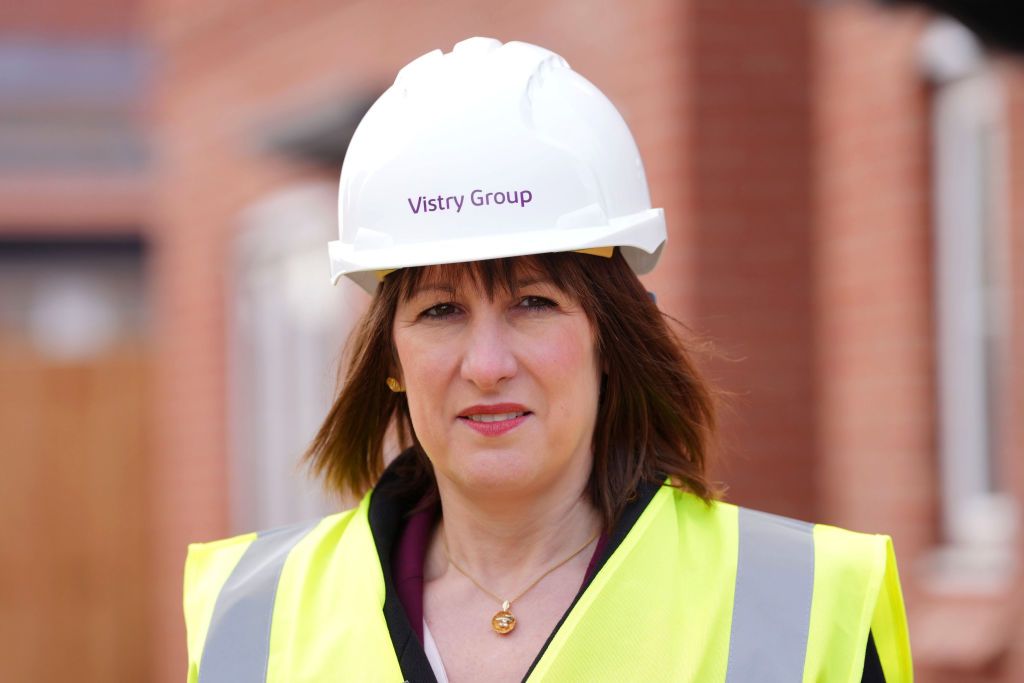Whatever other problems the British economy may face, you can usually rely on one thing: through good times and bad, the property market remains buoyant. There has not been a really significant crash since the early 1990s, and ever since then, a home has been the best investment anyone could make. In 1990, the average house cost £58,000. By this year, that had risen to £270,000, a rise of 365%. Even adjusted for inflation, the average price has more than doubled. The UK does not build nearly enough homes, especially given the rapid rise in the total population. So the existing ones keep getting more valuable.
Yet signs are starting to emerge that the market is turning. In 2022, prices were rising by 14% a year. That has slowed dramatically, and we are now starting to see absolute falls. The average price fell by 1.2% in July, a fall of almost £5,000 on the average property, according to figures from Rightmove released on Monday. In London, which used to keep driving prices higher, the fall was a more significant 1.5%. Of course, that is just one monthly set of figures. The data are always volatile. Even so, Rightmove is reporting the largest falls in summer prices for 20 years. That may well be a sign that prices are starting to decline significantly. Here are four factors contributing to the coming crash.
Why a house price crash is around the corner
First, the economy has stagnated. GDP declined again last month, and it looks certain that it will shrink over the quarter as a whole. After the punishing tax raid on employers’ national insurance, companies are cutting back on jobs, with the number of people in employment falling by more than 200,000 since the last Budget. Retail sales are struggling, factories are closing down because they can’t afford Europe’s most expensive electricity, and pubs and restaurants are closing as business rates rise. The economy is flat, at best, and may soon be heading into a full-blown recession. That means there are fewer people with money to spend on a new home.
Subscribe to MoneyWeek
Subscribe to MoneyWeek today and get your first six magazine issues absolutely FREE
Get 6 issues free
Sign up to Money Morning
Don’t miss the latest investment and personal finances news, market analysis, plus money-saving tips with our free twice-daily newsletter
Don’t miss the latest investment and personal finances news, market analysis, plus money-saving tips with our free twice-daily newsletter
Next, landlords and second-home owners are quitting. The government has made it clear it does not approve of people owning more than one home. Landlords have been hit with big increases in tax. Now, renters’ rights are being extended as well, making it far harder for a landlord to take back their property. Many are getting out of the sector as quickly as possible before the new laws come into force. Likewise, councils are imposing extra taxes on second homes, with many facing double, or even triple, the usual rate, meaning it can cost an extra £10,000 a year or more to own a weekend place by the sea. There are an estimated 4.4 million private rented homes in the UK, and another 700,000 second homes. If most of those end up being sold, it will add a huge amount of extra supply.
Thirdly, taxes and green levies are still increasing. Local authorities are allowed to push up council tax by 5% a year, every year, and most are so strapped for cash that they are using the entire legal limit. Stamp duty has been restored to its full rate for all buyers, adding tens of thousands to the cost of buying even the average home. Meanwhile, energy bills are rising to cover the cost of the switch to renewable power, and water may well soon be metered, meaning higher bills for those with bigger properties and gardens. People who may have thought of trading up won’t be able to afford it, and that will choke off demand.
Finally, there is a looming fiscal crisis. UK bond yields are already way above France, Germany and even Greece as investors demand a premium for lending to a government that looks to have lost control of public spending. The deficit is running at more than 5% of GDP, and any attempts to reduce it run into fierce opposition. Higher taxes are hitting the economy so hard that they bring in very little revenue. Britain is starting to look a lot like Greece in the run-up to the eurozone crisis 15 years ago.
If the market panics, the Bank of England will have no choice but to push up interest rates – and that would be the trigger for a full-scale collapse in house prices.
This article was first published in MoneyWeek’s magazine. Enjoy exclusive early access to news, opinion and analysis from our team of financial experts with a MoneyWeek subscription.

